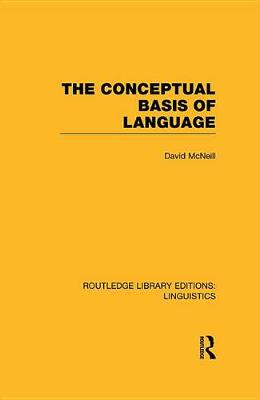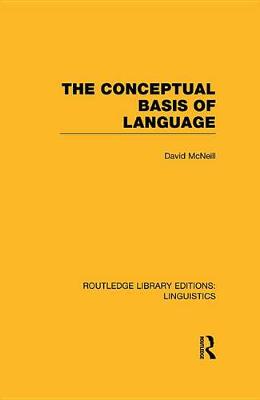Routledge Library Editions: Linguistics
2 total works
The Conceptual Basis of Language (RLE Linguistics A: General Linguistics)
by David McNeill
In this volume, the author deals explicitly and literally with the speech-thought relationship. Departing boldly from contemporary linguistic and psycholinguistic thinking, the author offers us one of the truly serious efforts since Vygotsky to deal with this question. A unifying theme is the organization of action, and speech is seen as growing out of sensory-motor representations that are simultaneously part of meaning and part of action.
The Conceptual Basis of Language (RLE Linguistics A: General Linguistics)
by David McNeill
In this volume, the author deals explicitly and literally with the speech-thought relationship. Departing boldly from contemporary linguistic and psycholinguistic thinking, the author offers us one of the truly serious efforts since Vygotsky to deal with this question. A unifying theme is the organization of action, and speech is seen as growing out of sensory-motor representations that are simultaneously part of meaning and part of action.

